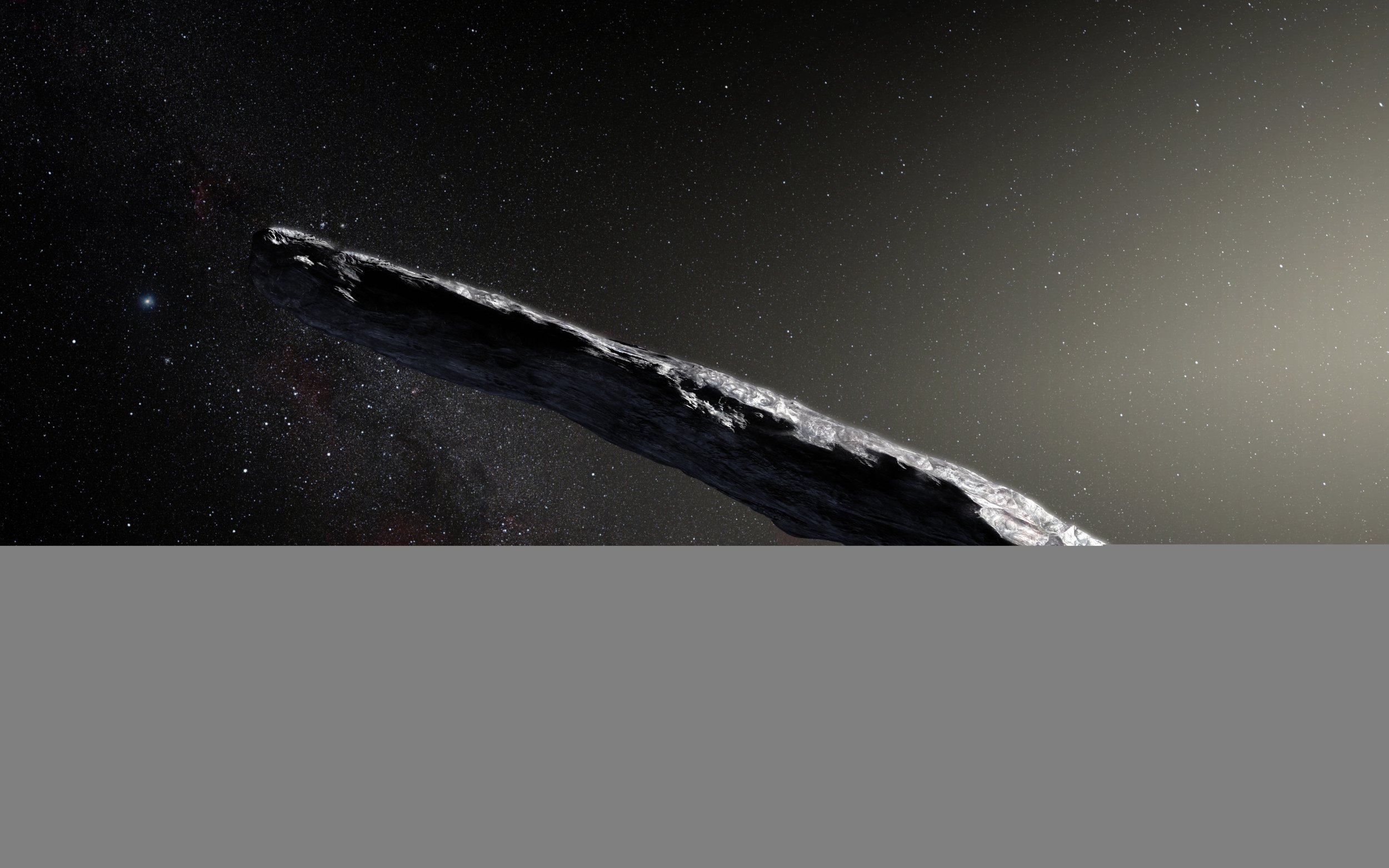
There could be thousands of alien rocks from distant solar systems just killing time in our neighborhood, according to a new pre-print paper posted to the site arxiv.org. If that's true, it could not only change the way we think about our solar system, but also have huge implications for the search for alien life.
The high number is the result of the inexorable tug of the two largest objects in our neighborhood, the sun and Jupiter. "The solar system acts as a fishing net," co-author Avi Loeb, an astronomer at Harvard University, told Newsweek. "Just like when you go fishing with a net you catch some fish, the solar system can capture interstellar objects."
The paper works from the recent discovery of Oumuamua, the first confirmed interstellar asteroid ever. Before spotting Oumuamua, scientists had thought that these long-distance travelers existed, but in relatively small numbers. But now that they've spotted one, they could use information like how long they looked at how much sky to estimate how many other interstellar objects could be in our solar system at any given time.
And once they knew that, Loeb and his co-author asked about the speed objects like Oumuamua could be traveling at. Their speed, combined with the mass of and distance between the sun and Jupiter, can tell astronomers whether or not objects hurtling in from beyond our solar system will get stuck here.
That's because the "fishing net" effect is caused by the combined gravity of the sun and Jupiter. If an object is moving fairly slowly, it gets sucked in by that gravity; if it's moving much faster—like Oumuamua, in fact—it can zoom through the solar system without getting trapped.
Once trapped, the study calculates, alien objects could be stuck in our neighborhood for a half a million years, or even longer. Some might be indistinguishable, but scientists should be able to catch at least the masqueraders that are icy by studying the chemical fingerprint of water vapor evaporating away. All in all, the trap means there should be plenty of time to study them and learn more about where they came from.
Loeb compares it to a family dinner. "You sit down for dinner and you're looking around the table and you assume that everyone is a member of the family," he said, but occasionally you realize there's a guest not related to the others. "Then you can learn about the outside world by examining that person."
In the case of asteroids, that could include answering questions like whether life exists beyond our planet, and if so, whether it can survive trips between different outposts. "It's almost like saving you the trip," Loeb said. "You don't need to go far, just in your backyard you can look at the fish that were caught up by the solar system."
And our solar system's table probably isn't the most crowded one out there. The new paper ran the same calculation on the nearest solar system to us, the Alpha Centauri system. Because that system has two suns instead of a sun and a large planet, the gravitational pull is stronger, which means more objects would be snared into orbit.
Uncommon Knowledge
Newsweek is committed to challenging conventional wisdom and finding connections in the search for common ground.
Newsweek is committed to challenging conventional wisdom and finding connections in the search for common ground.
About the writer
Meghan Bartels is a science journalist based in New York City who covers the science happening on the surface of ... Read more
To read how Newsweek uses AI as a newsroom tool, Click here.








